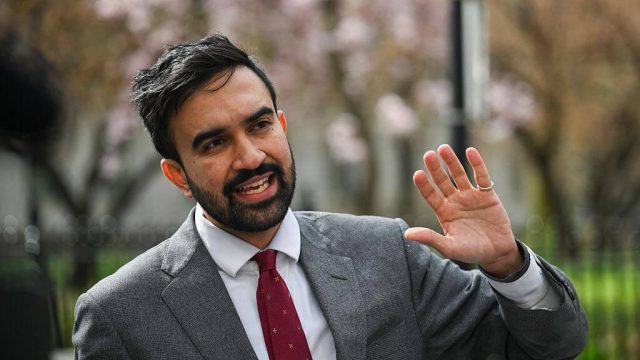Everything is security now
Green economy framing in the early days of the second Trump administration

We take a look at how internationally green economy messages are being framed and evolving in the first hundred days of the second Trump administration, and ask – are these new frames helping or hindering the transition?
Climate is now security first...
Climate change has long been recognised as a national security threat, including by previous US administrations. Trump 2.0 though seems keen to break the association, however, as references to climate change on the Department of Defence website are being taken down as we speak. Instead, in the wake of the war in Ukraine, the new framing is the “threat” of “energy security” instead of climate change.
On the international stage we also see Brazil framing climate change as important as defence. In Europe and in the UK politicians are increasingly using the language of “securonomics”. While this messaging can appeal to different audiences, it also captures the financial insecurity created by the cost of living crisis and the desire for stability in a destabilised world.
This evolving framing presents both opportunities and risks. On the one hand, recognising climate as a security issue can unlock political will, create new alliances and commitments for financial resources. On the other, we must guard against securitised responses that militarise climate action and marginalises the very communities most affected.
Common understandings of energy security have focused on making supplies reliable and affordable, with less attention paid to ensuring sources of energy are sustainable. This neglect compromises our collective security especially if this enables further fossil fuel rather than renewable investments.
...with shades of energy nativism
To make the picture of what is happening even more murky some governments are using this framing - attaching a national flag onto green renewable energy initiatives - think GB energy and how popular this is with public while also enabling extractive fossil fuel licensing in the North Sea.
In Germany climate conservatives have given green issues a patriotic re-brand. The emergent right wing of the German environmental movement has adopted a moral reframing that downplays progressive themes of social justice and global responsibility in favour of more nationalist tones.
“ Supporting ambitious action on climate change is neither niche nor elite. To accept this framing is not only to seed ground to climate action opponents, it is to do their work for them by exacerbating freeloader concerns.”
Florian Wagner, the executive director of a recently founded environmental group called Heimatwurzeln (“homeland roots”) has said, “Environment and climate protection are not the opposite of patriotism, they are its expression.” This narrative is aimed at voters described as "nostalgic conservatives", the "pragmatic middle class" and the "precarious milieu" – core Christian Democrat clienteles where the far-right Alternative for Germany (AfD) has been gaining ground by railing against 'wokeist' wind turbines, electric cars and Germany's gradual phaseout of coal mining.
Jobs, jobs, jobs
Meanwhile in Washington at the Spring Meetings, the World Bank’s new “north star,” is job creation. Jobs, as the path for prosperity and a means to garner support for climate action is an approach that the C40 mayors have been adept at. Green jobs messaging favoured by politicians and policy makers currently has some limits in effectiveness, that is not to say that support for this as a narrative can’t grow especially in the context of a recession but this is an important idea to keep an eye on especially as some right wing parties are trying to use this language.
Reform in the UK are trying to present themselves as the champion of jobs of the depleting gas and oil industry. This jobs messaging works hand in hand with efforts to convince his coalition of voters that a transition is “luxury” not a necessity. This is part of a wider narrative or attempt to position “Net Zero” as the new Brexit or unpopular elite project. Supporting ambitious action on climate change is neither niche nor elite. To accept this framing is not only to seed ground to climate action opponents, it is to do their work for them by exacerbating freeloader concerns.
We can’t talk about climate messaging without acknowledging the impact of the orange one. The election of Trump underlined the wider political economy trends that we saw in the year of elections. Incumbents were falling, there was more political volatility in response to deep economic pessimism, collapsing trust in traditional political parties, increased anxiety and anger, as well as an openness to disruptors.
Incumbent leaders who campaigned on their economic record without improving social progress suffered at the polls in 2024, in 2025 this pattern could be about to change in response to how politicians are positioning themselves in response to Trump and his policies.
Better messages can build support for the transition, but they can also be used to hide actions counter to this and that undermine our longer-term security. Messages can only do so much and we must remain vigilant to ensure that policies are in alignment with their intention. It is important that supporters of climate action continue to create compelling stories to support and build momentum for the transition and critically, to not cede popular narratives to the right.
True security means charting a path towards a world that is more socially, economically and environmentally secure. The green transition is not just about national security, technology or economic targets. As we “secure our future”, we have to be explicit about who gets to feel safe—and who gets to thrive as we work towards a green and fairer future for all.
- Jean McLean, GEC


